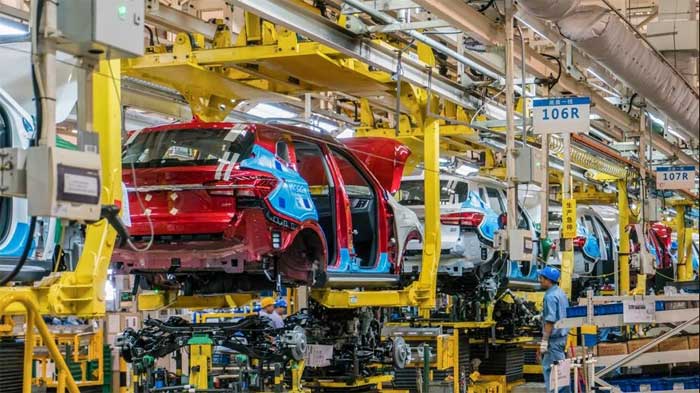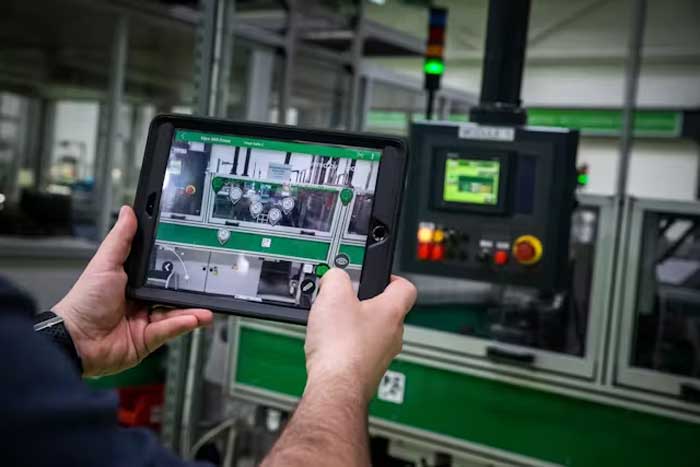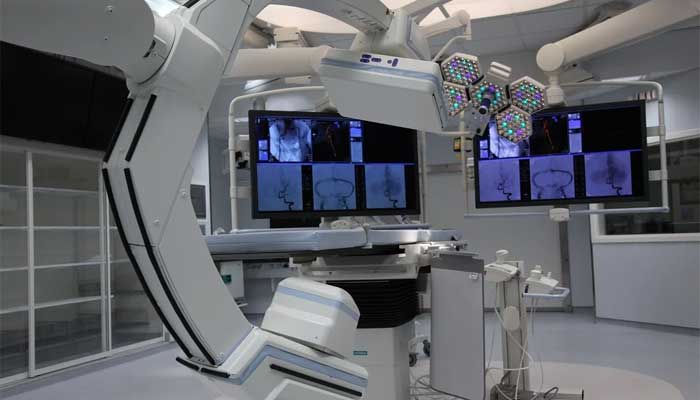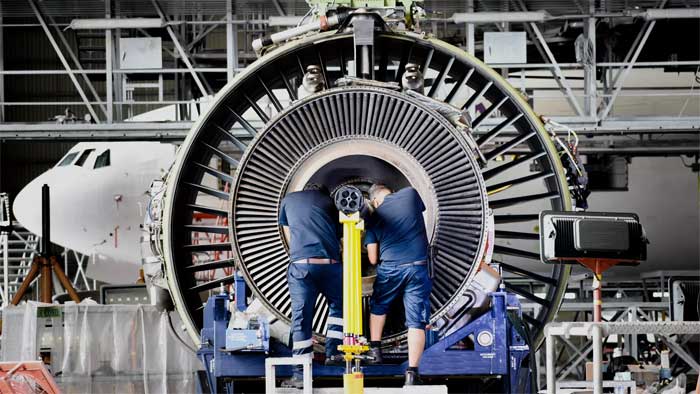Table of Contents:
What is smart manufacturing?
- February 13, 2025
- Tony
- Last updated on November 10, 2025 by Lucy
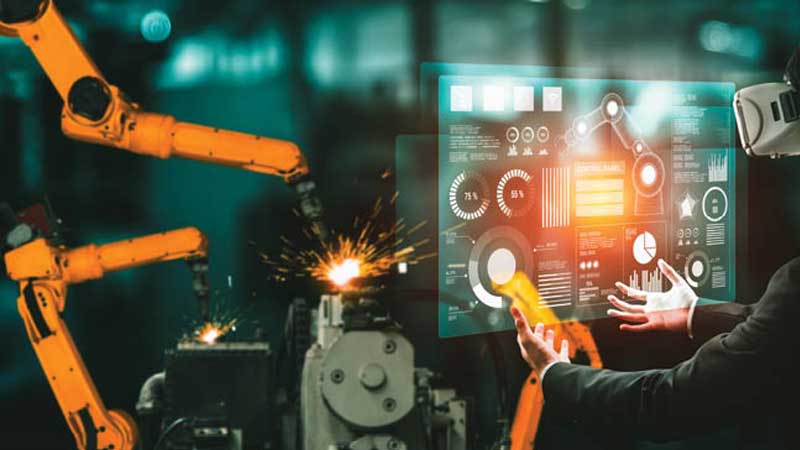
In this article, we will discuss the definition of the concept of smart manufacturing, core technologies, industry applications, advantages and challenges, and look forward to the future trends, together with you to discover more opportunities.
1. Overview
What is Smart Manufacturing?
Smart Manufacturing, or “intelligent manufacturing”, is a manufacturing method that combines informationization, digitalization, and automation to achieve self-regulation and optimization through a highly interconnected production system.
Advantages of Smart Manufacturing
Compared to traditional manufacturing, smart manufacturing offers several key benefits:
- Increased Productivity: Streamlined processes and automation improve overall efficiency.
- Reduced Waste: Enhanced resource management minimizes material waste.
- Improved Quality: Real-time data monitoring ensures higher precision and consistency.
- Customization: Flexible systems allow for easy adaptation to meet individual customer needs.
- Market Responsiveness: Agile production processes quickly adapt to changing market demands.
2. Core Technologies Driving Smart Manufacturing Innovation
Core technologies for smart manufacturing include the following key components:
Internet of Things (IoT)
IoT connects machines, sensors, and devices across the production floor, enabling real-time monitoring and data exchange. This connectivity helps manufacturers track equipment performance, predict maintenance needs, and enhance overall operational efficiency.
Artificial Intelligence (AI) & Big Data
By analyzing large amounts of real-time data, AI helps predict market trends and optimize production processes and quality control.
Cloud & Edge Computing
Cloud platforms provide data support for all types of production processes, while edge computing makes data processing more efficient and reduces transmission delays.
Automation & Robotics
Automated production lines and collaborative robots greatly improve production efficiency and reduce human intervention.
Digital Twin Technology
Through virtualization technology, digital replicas of production lines and equipment are created for real-time monitoring and optimization, helping to reduce failures and improve equipment efficiency.
📌Case Study: From Guesswork to Precision in Automotive Parts Manufacturing
We had an automotive supplier struggling with brake caliper brackets. Their quality issues were causing line stoppages at their customer’s assembly plant.
The Problem:
- Part: 6061 Aluminum brake caliper brackets
- Critical tolerance: ±0.025mm on mounting surfaces
- Rejection rate: 8% (mostly thermal expansion issues)
- Inspection time: 25 minutes per part
- Machine utilization: 62% across three shifts
- Customer complaints: 3-4 per month about dimensional variation
Our Smart Manufacturing Solution:
- Installed thermal compensation on all CNC machines
- Added real-time pressure and temperature monitoring in hydraulic systems
- Implemented automated in-process probing with adaptive control
- Created digital twins for thermal expansion simulation
- Deployed tool condition monitoring with machine learning algorithms
The Measurable Results:
- Rejection rate: Dropped from 8% to 0.7% in 60 days
- Machine utilization: Increased from 62% to 88%
- Inspection time: Reduced from 25 minutes to 4 minutes per part
- Quality complaints: Zero in past 6 months
- Energy consumption: Reduced by 18% through optimized cycle times
- Overtime costs: Cut by $3,200 monthly through better scheduling
The client not only eliminated their quality issues but increased their production capacity by 42% without adding new machines. The key was addressing the root cause – thermal variation – rather than just inspecting for symptoms.
3. Smart Manufacturing Applications Across Industries
Automotive Manufacturing
Through intelligent technologies, automotive production can achieve higher flexibility and precision, meet the needs of different models and customers, and optimize supply chain management.
Electronic & Electrical Equipment
Especially in the manufacturing of precision equipment and integrated circuits, intelligent production can improve product accuracy and reliability, and reduce scrap rates.
Medical equipment
Intelligent manufacturing supports the production of high-precision medical equipment, such as personalized medical devices and demanding diagnostic equipment.
Aerospace
The high complexity and safety requirements of this industry drive the application of smart manufacturing, which improves production efficiency and quality through precision machining and data analysis.
Food & Beverage
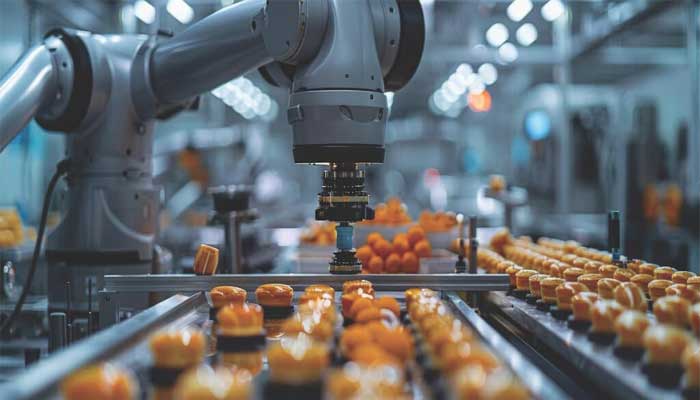
Intelligent manufacturing helps food processing companies to realize full-process control from raw material traceability to final packaging, ensuring product quality and safety.
4. Key Benefits of Adopting Smart Manufacturing
Improve production efficiency:
Through automated production and real-time monitoring, production cycle time and human errors can be significantly reduced, and production capacity can be increased.
Reduces operating costs:
More accurate resource management and production scheduling reduce waste and lower labor and production material costs.
Improve product quality:
Real-time data analytics and automated inspections ensure high standards in the production process, reducing quality issues.
Satisfy personalized demand:
Intelligent production makes product customization more flexible and can support small-lot, diversified production needs.
Optimizing the supply chain:
Digitalization and automation help companies achieve intelligent management of the supply chain, improving response time and supply chain flexibility.
5. Challenges and solutions
Despite the many benefits of smart manufacturing, there are some challenges in its practical application:
Technology and Infrastructure Issues:
Some enterprises are not yet ready to implement smart transformation, which requires large infrastructure investments and may face considerable pressure in the process of technology upgrading.
Data security and privacy issues:
The collection and transmission of large amounts of data make information security a major challenge. Enterprises must strengthen protective measures to ensure the safety of production data.
Skill Shortage and Talent Cultivation:
With the popularization of intelligent technology, enterprises are facing a shortage of talent, especially highly skilled personnel to operate advanced equipment and system analysis.
Large initial investment:
The initial investment in intelligent manufacturing is often high, and enterprises need to make adequate preparations in terms of equipment, technology and training.
6. Future Trends
In the future, smart manufacturing will continue to drive technological innovation and enter a wider range of application scenarios:
Convergence of 5G technology:
5G will dramatically increase the speed and reliability of data transmission, enabling smart manufacturing to operate more efficiently, especially in remote operation and real-time control.
Automation and human-machine collaboration:
Future production will focus more on the combination of automated equipment and artificial intelligence, and human-machine collaboration will become the norm.
Ongoing Digital Transformation:
As data analytics and cloud computing technologies continue to evolve, more companies will adopt a digital approach to production management and decision-making.
Green Manufacturing:
Intelligent manufacturing will not only focus on efficiency improvement, but also pay more attention to environmental protection and sustainable development, and promote the application of green technology.
7. How to realize intelligent transformation?
To successfully implement smart manufacturing, enterprises need to take the following steps:
Develop a clear digital transformation strategy:
Enterprises first need to define the implementation goals of smart manufacturing and develop a systematic transformation roadmap.
Invest in advanced equipment and technology:
Select appropriate automated production equipment and intelligent technology to improve the automation level of production.
Establish a data-driven decision-making mechanism:
Use big data and artificial intelligence to monitor and optimize the production process in real-time, forming a data-driven decision-making system.
Talent training and transformation:
Enterprises need to provide skills training for their employees to help them adapt to new technologies and new operating methods in the intelligent production process.
8. Relationship between Intelligent Manufacturing and Industry 4.0
Industry 4.0 forms the backbone of smart manufacturing. It focuses on transforming production through advanced automation, intelligence, and digital technologies.
By combining Industry 4.0 with smart manufacturing, the production model becomes more efficient, flexible, and customizable. This is achieved through:
- Connectivity: Devices and systems communicate in real-time.
- Data Analysis: Insights from data improve decision-making and process optimization.
- Automation Control: Processes are automated for greater precision and speed.
Together, Industry 4.0 and smart manufacturing reshape how products are made, driving a new era of innovation in the manufacturing industry.
9. Conclusion: The Future Outlook of Smart Manufacturing
Smart manufacturing is transforming the manufacturing industry by boosting productivity, quality, and flexibility. As technology advances and companies embrace intelligent transformation, it will become a key competitive advantage.
While challenges remain in its implementation, the ongoing evolution of technology will drive a more sustainable, efficient, and eco-friendly production model, helping businesses stay competitive in the market.
